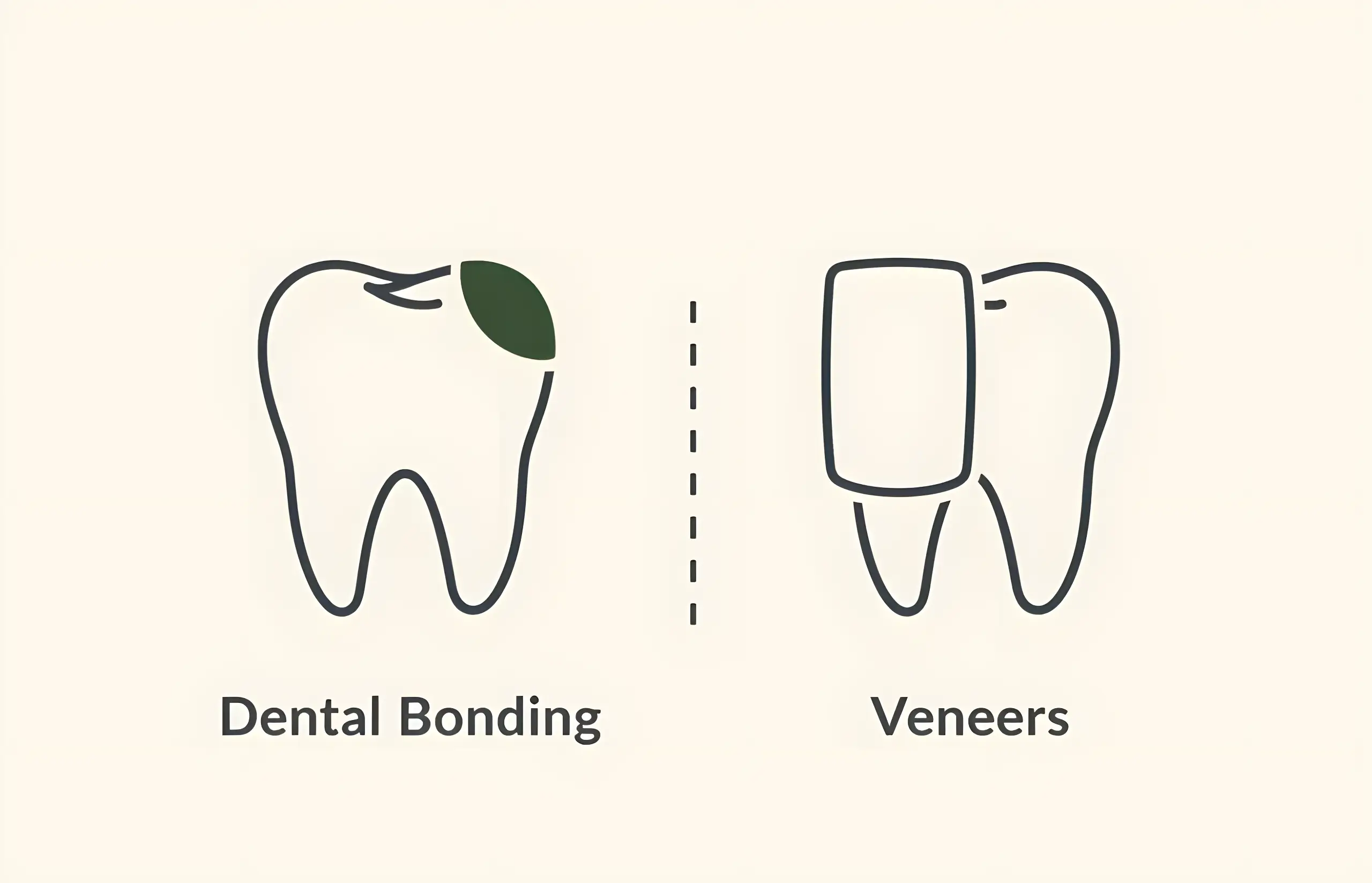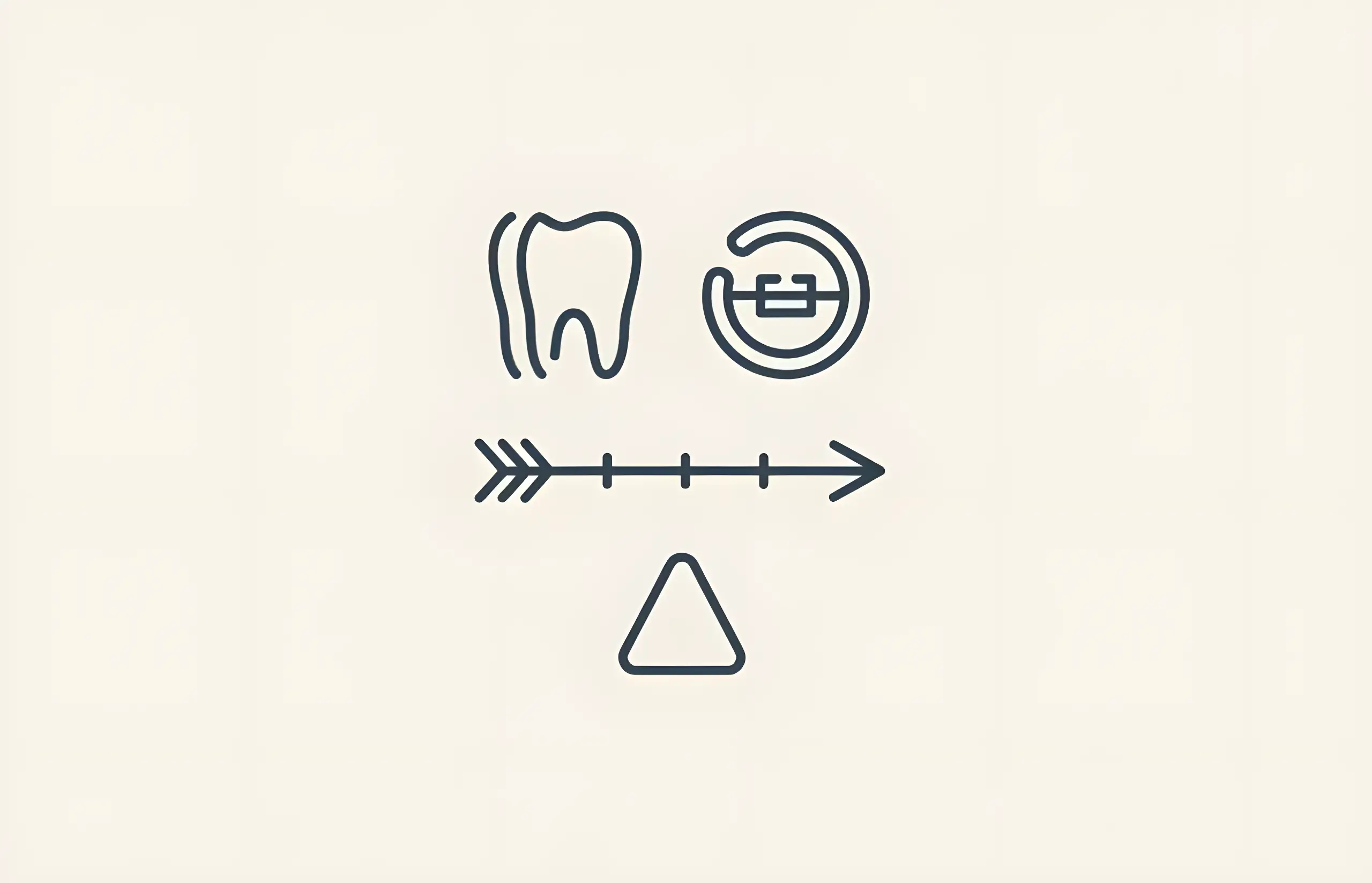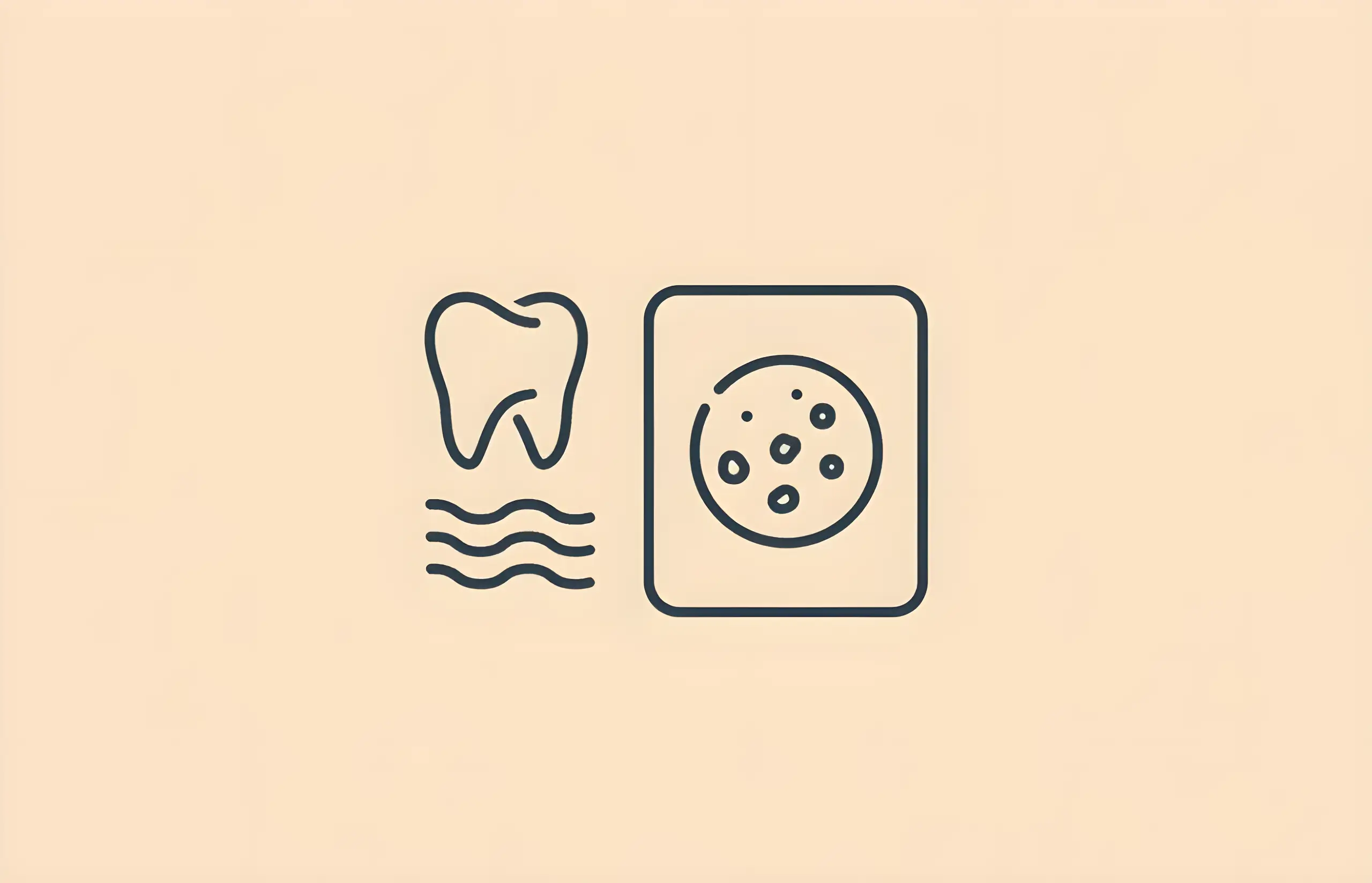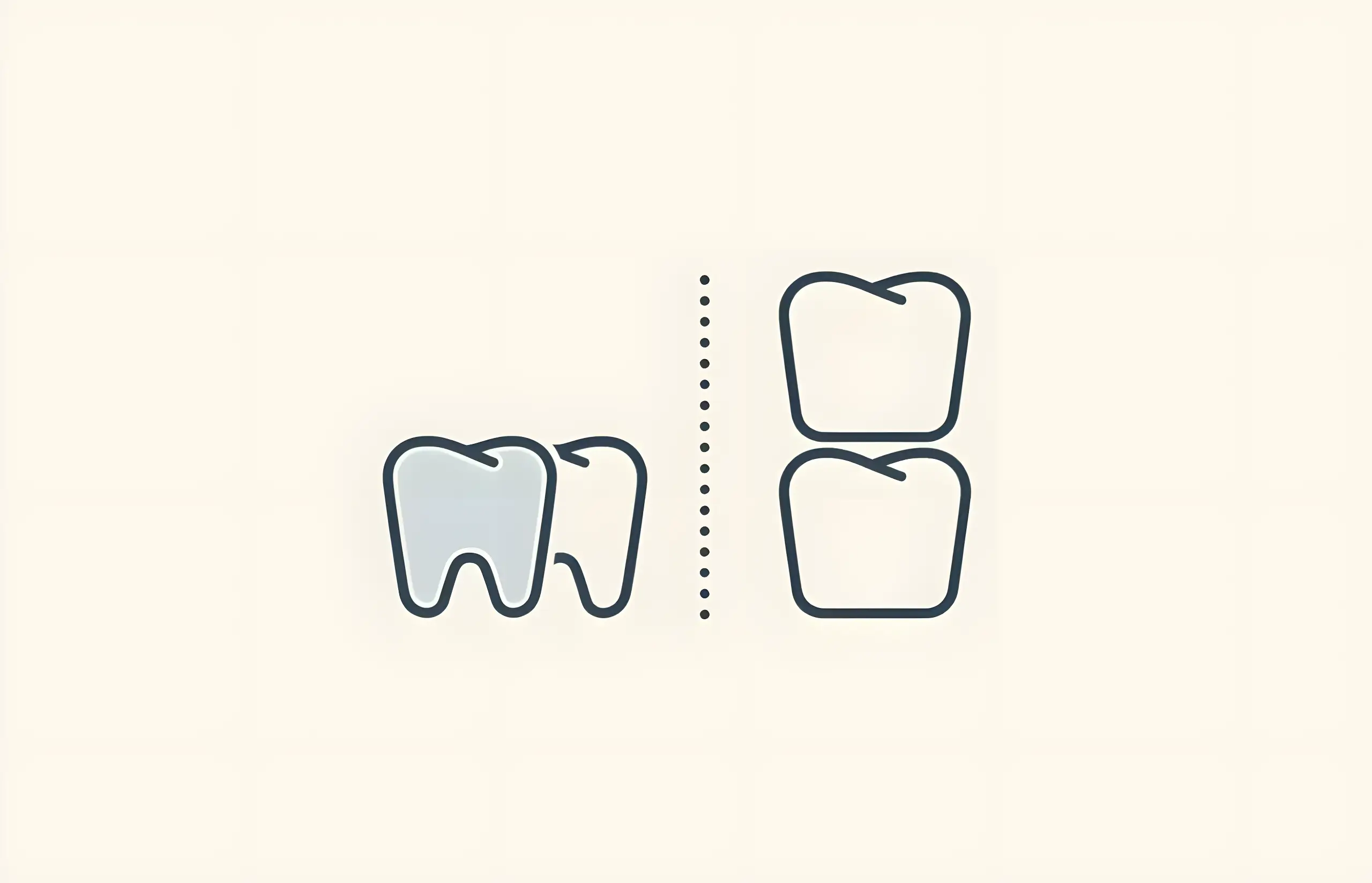The difference to someone's smile is really apparent when you look at before and after veneers pictures. The change after having veneers fitted can be pretty drastic, as you can see from the videos below. Various types of veneers are available, but they're all very effective treatments for transforming a person's smile, and can make a huge difference to a person's appearance.
Dental veneers are one of the most popular cosmetic dentistry treatments in the UK, and for good reason. They can dramatically transform your smile by correcting a wide range of aesthetic issues, from discoloration and chips to gaps and misalignment. In this comprehensive guide, we'll explore the transformation that veneers can provide, backed by scientific evidence and clinical outcomes.
Understanding Dental Veneers Transformation
Dental veneers are thin shells of porcelain or composite resin that are bonded to the front surface of your teeth. They're custom-made to match the shape, size, and color you desire, creating a natural-looking enhancement to your smile.
Research published in the Open Access Macedonian Journal of Medical Sciences demonstrates that porcelain veneers show excellent aesthetic results with impressive longevity rates: 96% survival after 10 years and 91% after 20 years. Another study found 94% survival at 5 years and 93% at 10 years, highlighting their durability when proper techniques are used.
What Changes Can Veneers Make?
Dental veneers can address multiple aesthetic concerns simultaneously:
- Tooth Discoloration: Veneers can cover severe staining that doesn't respond to teeth whitening treatments
- Chips and Cracks: Damaged teeth can be restored to their original appearance
- Gaps Between Teeth: Veneers can close spaces without orthodontic treatment
- Misaligned Teeth: Minor alignment issues can be corrected cosmetically
- Uneven Tooth Size or Shape: Veneers create uniformity and proportion
- Worn Teeth: Age-related wear can be reversed for a more youthful appearance
Porcelain vs Composite Veneers: Clinical Outcomes
Research shows distinct differences between the two main types of veneers:
Porcelain Veneers
Clinical studies demonstrate strong longevity for porcelain veneers:
- 96% survival after 10 years; 91% after 20 years
- 94% survival at 5 years; 93% at 10 years
- Excellent aesthetic results and predictable longevity
- Superior stain resistance
- More natural light reflection properties
The research indicates that "incisal overlap preparation seems to have the most predictable outcome from all the preparation designs" because this design distributes occlusal forces across a larger surface area.
Composite Veneers
Composite resin veneers offer a more conservative option:
- 89% survival at 5 years
- 80% estimated survival at 5 years in some studies
- 87% survival over 3+ years
- Good conservative option, but with less durability than porcelain
- More affordable (typically £400-£700 vs £700-£1,000 for porcelain)
- Can often be completed in a single appointment
A case study published in the Journal of Dental Research followed a patient with direct composite veneers for two years. At follow-up, the restorations remained stable with no fractures, cracks, discoloration, or demarcation lines. The patient reported satisfaction with both aesthetic appearance and durability, demonstrating that when executed properly, direct composite veneers function as "minimally invasive, functional and long-lasting" restorations.
Patient Satisfaction Research
Patient satisfaction with veneers is generally high when proper techniques are followed. Research shows satisfaction rates of 80-100% for properly executed veneer treatments.
However, a comprehensive 2024 study published in the Journal of Esthetic and Restorative Dentistry provided a more nuanced picture. While 89.3% of ceramic veneers survived after 9-10 years of follow-up, 79.4% had survived with complications such as material defects, secondary caries, and gingival problems. Among 233 veneers evaluated, only 9.87% were deemed fully successful, while 10.73% failed completely.
The study found that patients reported greatest dissatisfaction regarding:
- Function of the veneers
- Food impaction issues
- Cleaning difficulties
This highlights the importance of proper patient education about realistic expectations, potential complications, and the need for meticulous oral hygiene to extend restoration longevity.
Psychosocial Impact of Smile Transformation
The psychological benefits of improving dental aesthetics through veneers are well-documented in scientific literature. A 2024 study published in BMC Oral Health examined 410 university students and found a statistically significant negative relationship between dental aesthetic concerns and self-esteem (Spearman coefficient r=-0.316, p < 0.001).
This means that students experiencing greater psychosocial impact from dental appearance "tended to exhibit lower self-esteem." The study found that only 34% of participants expressed satisfaction with their teeth before treatment, with tooth arrangement and positioning being the primary concerns (32.2% of dissatisfaction).
By addressing these aesthetic concerns, veneers can lead to:
- Improved self-confidence
- Reduced appearance-related psychological distress
- Enhanced social interactions
- Greater willingness to smile
- Improved quality of life
Digital Smile Design: Modern Treatment Planning
Modern veneer treatments increasingly utilize digital smile design (DSD) technology to plan and visualize results before treatment begins. A 2024 systematic review published in Cureus analyzed 10 studies involving 344 subjects and found that DSD demonstrates significant clinical benefits:
Patient Satisfaction Benefits:
- Three-dimensional treatment simulations showed "obvious advantages in the aspects of intuitiveness and treatment understanding"
- Satisfaction rates were higher with 3D digital methods compared to traditional 2D approaches
- Enhanced predictability of treatment outcomes through virtual simulations
Clinical Advantages:
- Improved communication between dentists and patients
- Reduced chairside working time
- Minimized procedural errors
- Lower during- and post-surgery pain compared to conventional methods
- Clinical adequacy for final prosthetic pieces
Digital smile design allows you to see a preview of your potential results, helping you make informed decisions about your treatment and ensuring the final outcome matches your expectations.
Factors Affecting Veneer Success
Research has identified several key factors that influence the long-term success of dental veneers:
Critical Success Factors:
- Preparation Design: Incisal overlap preparation produces the most predictable outcomes
- Bonding Surface: Success depends critically on bonding to enamel rather than dentin
- Parafunctional Habits: Absence of teeth grinding or clenching improves longevity
- Oral Hygiene: Proper care prevents gingival inflammation and secondary caries
- Material Selection: Porcelain offers superior durability for most cases
Common Complications:
- Marginal adaptation problems (most common in ceramic veneers)
- Gingival inflammation or irritation
- Marginal discoloration over time
- Material defects or fractures
- Secondary caries at margins
- Food impaction issues
Comparing Veneers to Other Options
If you're considering veneers, you might also want to explore:
- Dental Bonding: More affordable (£90-£200) but less durable option using composite resin
- Lumineers: Ultra-thin veneers requiring minimal tooth preparation
- Teeth Whitening: For discoloration alone, whitening may be sufficient
- Invisalign or Orthodontics: For significant alignment issues
For a detailed comparison, see our guide on dental bonding vs veneers.
Cost Considerations in the UK
Veneer costs in the UK typically range from:
- Composite Veneers: £400-£700 per tooth
- Porcelain Veneers: £700-£1,000 per tooth
- Snap-on Veneers: £300-£600 (temporary removable option)
For detailed pricing information, see our guides on how much porcelain veneers cost and general veneer costs.
Veneers are generally considered cosmetic and are not available on the NHS, so you'll need to seek treatment from a private cosmetic dentist.
Important Considerations Before Getting Veneers
Before proceeding with veneers, ensure you understand:
- Irreversibility: Tooth preparation for traditional veneers is irreversible, as a thin layer of enamel must be removed
- Maintenance: Veneers require excellent oral hygiene and regular dental check-ups
- Replacement: Even porcelain veneers will eventually need replacement (typically 10-20+ years)
- Existing Dental Health: Any gum disease or tooth decay must be treated first
- Lifestyle Factors: Teeth grinding, smoking, and certain foods can affect veneer longevity
Duration and Longevity
The veneer treatment process typically involves:
- Initial Consultation: Treatment planning and digital smile design
- Tooth Preparation: Removing a thin layer of enamel (usually 0.5-0.7mm)
- Temporary Veneers: Worn while permanent veneers are fabricated (1-2 weeks for porcelain)
- Bonding Appointment: Permanent veneers are checked for fit, color, and shape, then bonded
How Long Do Veneers Last?
- Porcelain veneers: 10-20+ years with proper care
- Composite veneers: 5-10 years typically
- Success depends on oral hygiene, lifestyle factors, and regular dental visits
Potential Downsides
While veneers offer dramatic aesthetic improvements, be aware of potential issues:
- Initial Sensitivity: Temporary sensitivity after tooth preparation is common
- Staining: Composite veneers are more prone to staining than porcelain
- Gum Health: Poor-fitting veneers can irritate gums and cause inflammation
- "Turkey Teeth" Look: Overly large or unnaturally white veneers can look artificial (read about Turkey teeth)
- Cost: Multiple veneers can be expensive, with full smile makeovers costing £5,000-£15,000
Final Thoughts
Dental veneers can provide a dramatic smile transformation with high patient satisfaction when proper techniques and materials are used. Research demonstrates that porcelain veneers offer superior longevity (96% survival at 10 years) and aesthetics, while composite veneers provide a more affordable, conservative option.
The key to successful outcomes is:
- Choosing an experienced cosmetic dentist
- Using proper preparation techniques (incisal overlap design)
- Ensuring bonding to enamel rather than dentin
- Maintaining excellent oral hygiene
- Having realistic expectations about results and maintenance
The psychosocial benefits are significant, with research showing improved self-esteem and reduced appearance-related distress. Modern digital smile design technology allows you to preview results before treatment, enhancing communication and satisfaction.
If you're considering veneers, consult with a qualified cosmetic dentist to determine if they're the right solution for your specific dental needs and aesthetic goals. Review before and after pictures from your dentist's previous cases to get a realistic sense of the transformation you can expect.
Sources and References
-
[1]
The Success of Dental Veneers According To Preparation Design and Material TypeOpen Access Macedonian Journal of Medical Scienceshttps://pmc.ncbi.nlm.nih.gov/articles/PMC6311473/
-
[2]
Long-Term Outcomes of Ceramic Veneers Restorations: A Comprehensive Analysis of Clinical and Patient-Reported MetricsJournal of Esthetic and Restorative Dentistryhttps://pubmed.ncbi.nlm.nih.gov/39639467/
-
[3]
Smile makeover with direct composite veneers: A two-year follow-up reportJournal of Dental Research, Dental Clinics, Dental Prospectshttps://pmc.ncbi.nlm.nih.gov/articles/PMC6076883/
-
[4]
Evaluating the influence of dental aesthetics on psychosocial well-being and self-esteem among students of the University of Novi Sad, Serbia: a cross-sectional studyBMC Oral Healthhttps://pubmed.ncbi.nlm.nih.gov/38408989/
-
[5]
The Recent Use, Patient Satisfaction, and Advancement in Digital Smile Designing: A Systematic ReviewCureushttps://pmc.ncbi.nlm.nih.gov/articles/PMC11251929/
All sources accessed and verified on . Medical information reviewed for accuracy and compliance with current guidelines.
Related Articles

A Guide to Adult Orthodontics
Comprehensive information about orthodontic treatment for adults, including treatment options, costs, and what to expect

A Guide to Composite Resin Veneers
Comprehensive information about composite resin veneers, including their uses, procedure, longevity, and how they compare to porcelain veneers

Dental Bonding v Veneers
Complete comparison guide covering porcelain veneers versus dental bonding including success rates, longevity statistics, costs, treatment duration, and choosing the right option

Dental Bonding – Costs and Information
Comprehensive guide to dental bonding procedures, including composite bonding, adhesive bonding, treatment process, and costs ranging from £90 to £800 depending on the type of bonding

How Much Do Dental Veneers Cost in the UK?
Comprehensive guide to dental veneers including history, materials (composite, porcelain, lithium disilicate), treatment process, costs (£200-£1000 per tooth), longevity, care instructions, and cost factors

How Long Do Veneers Last?
Comprehensive guide to veneer longevity including survival rates, replacement considerations, irreversible enamel removal, color stability issues, and alternative restoration options

A Guide to Dental Lumineers
Comprehensive information about Lumineers ultra-thin veneers, including the fitting process, benefits, longevity, and how they differ from traditional veneers

Do Porcelain Veneers Stain?
Comprehensive guide to porcelain veneers staining resistance, marginal discoloration (most common complication), color stability compared to composite, beverage effects (Coca-Cola worst, coffee second), surface roughness impact, and prevention strategies

What is the Cost to Repair Chipped, Cracked, or Broken Teeth?
Comprehensive guide to tooth damage repair costs in the UK: NHS Band 1 (£22.70) for minor chips, Band 2 (£62.10) for fillings/root canals, Band 3 (£269.30) for crowns/veneers, with treatment success rates and prevention strategies
About The Dental Guide
The Dental Guide is a trusted online resource providing evidence-based information about dental health, treatments, and procedures. Our content is created and reviewed by qualified dental professionals to help you make informed decisions about your oral health.
Our Mission
- Evidence-based dental information
- Expert-reviewed content
- Clear, accessible explanations
- Latest treatment options
- Patient-focused guidance
Editorial Standards
- GDC-registered dental professionals
- Peer-reviewed sources
- Regular content updates
- Medical accuracy verification
- Transparent authorship
Important Notice
The information on The Dental Guide is for educational purposes only and should not replace professional dental advice. Always consult with a qualified dentist for diagnosis and treatment recommendations tailored to your individual needs and circumstances.
Medically Reviewed
Reviewed by Dr. Nasim Mechoui , BDS (Bristol)
Share this article
Comments & Discussion
Have questions about dental implants? Share your thoughts or experiences.
